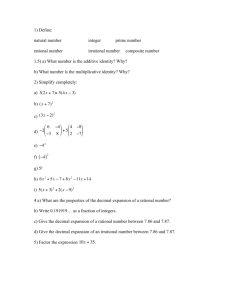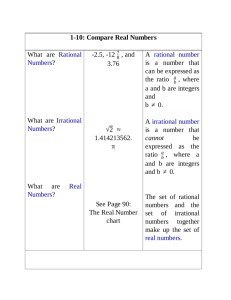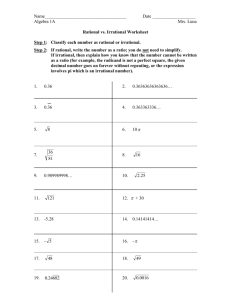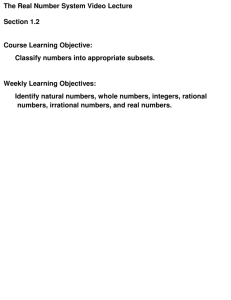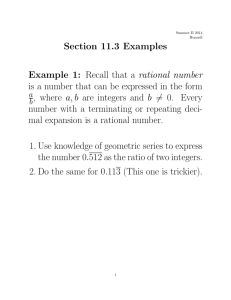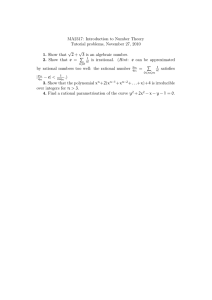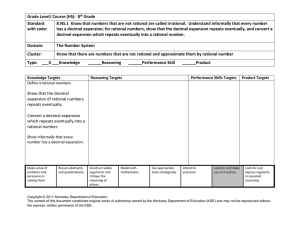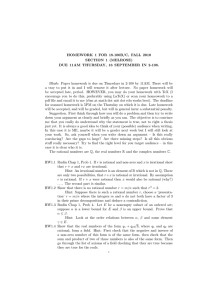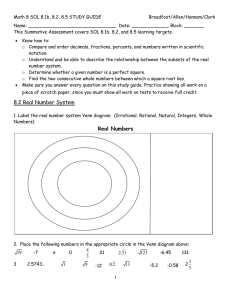Sets of Real Numbers Presentation
advertisement
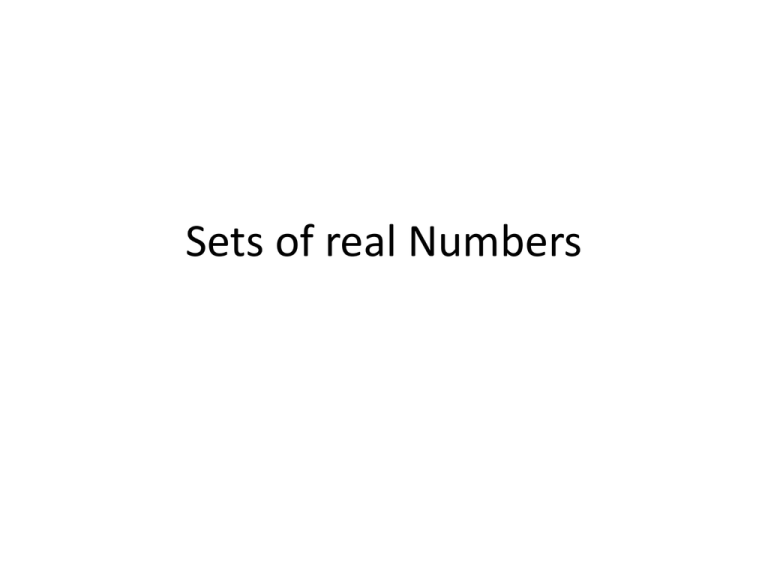
Sets of real Numbers Warm Up Write all names that apply to each number. 1. 7 8 5. 0 2. 36 6. − 100 3. 24 7. 5. 45 4. 0.75 8. 18 − 6 • Clarify understanding of the real number system. • Characterize sets and subsets of the real numbers. • Identify sets for real-world situations. • Identify all of the possible subsets of the real numbers for a given number. • Decide whether a statement about a subset of the real numbers is true or false. • Identify the set of numbers that best describes a real world situation. Write all names that apply to each number. -10 12 3 • Real numbers are composed of rational and irrational numbers. • Whole numbers are rational numbers. Identify the set of numbers that best describe the situation. Explain your choice. • The amount of time that has passed since midnight. • The number of tickets sold to a basketball game. Knowing the types of numbers to expect in different situations can alert you to incorrect math as well as to impossible situations. For example, 13.5 shots made in basketball is not possible, but an average number of shots can equal 13.5. 1 11 Ronald states that the number is not rational because when converted into a decimal, it does not terminate. Nathaniel says it is rational because it is a fraction. Which boy is correct? Explain. Irrational numbers can never be precisely represented in decimal form. Why is this? Exit Ticket 1. Write all the names that apply to −1. 5. 2. Tell whether the given statement is true or false. Explain your choice. All numbers between 1 and 2 are rational numbers. 3. Identify the set of numbers that best describes the situation. Explain your choice. The choices on a survey question change the total points for the survey by -2, -1, 0, 1, or 2 points.
